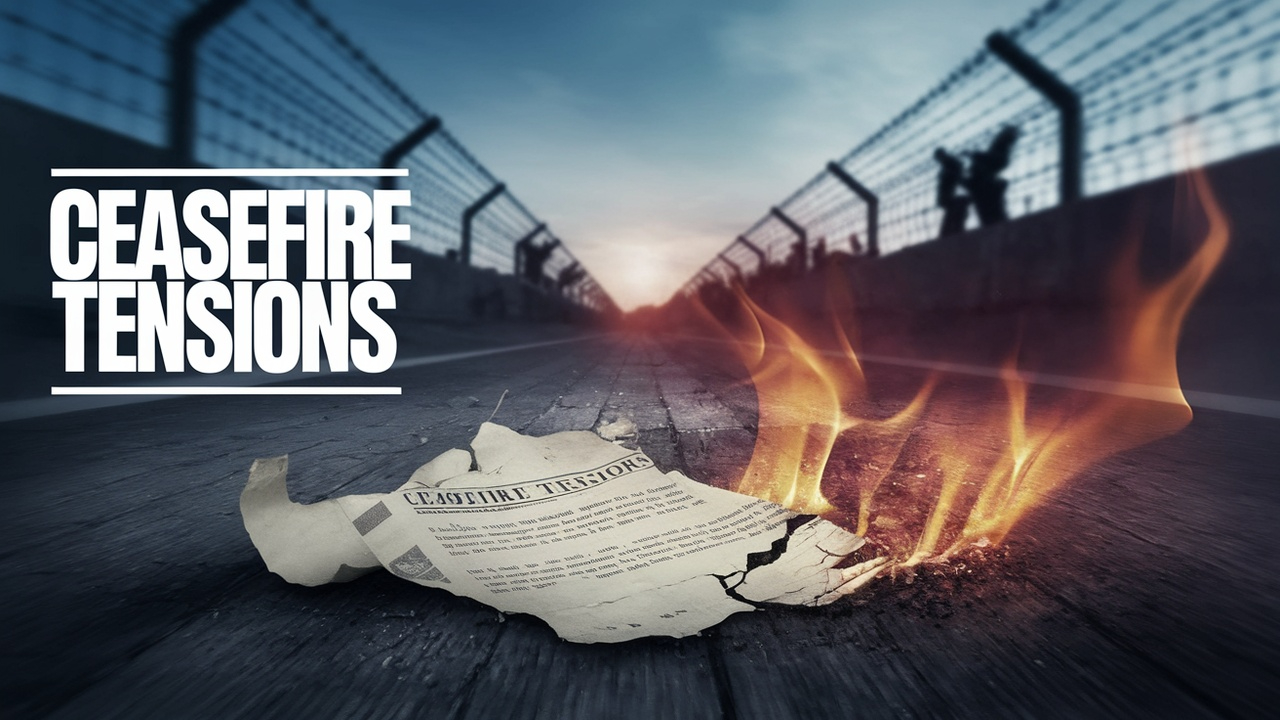Israel Assaults Lebanon: Simplified Update
BEIRUT — Israel carried out airstrikes in southern Lebanon on Saturday, March 22, 2025, striking Hezbollah sites after rockets were fired into northern Israel.

The strikes killed at least eight people, among them a child, and wounded dozens others. They occurred in towns such as Tyre and Bint Jbeil, fueling fears of a broader conflict. It is the latest flare-up of a fragile truce established last November between Israel and Hezbollah. The rocket fire, which Israel says was launched from Lebanon, has contributed to rising tensions.
Fatal Strikes Come After Rocket Fire
The day began with sirens in Metula, an Israeli border town, at about 7:30 a.m. local time. The Israeli military said three rockets were fired from Lebanon, some six kilometers north of the border. They all were shot down, with no injuries in Israel. Israel, in turn, struck back ferociously. The Israeli Defense Forces (IDF) reported that it had targeted Hezbollah command centers, rocket launchers, and a weapons depot. Lebanon’s Health Ministry said late Saturday that eight people had been killed and 40 wounded in the south.
A strike on Tyre, a major coastal city, killed one person and injured seven others. A separate assault in Touline claimed five lives, among them a child. Israel said it had acted to prevent Hezbollah from rearming. But the airstrikes targeted areas far from the border, which raised concerns among Lebanese officials. “This could draw us into a new war,” Prime Minister Nawaf Salam of Lebanon said in a statement. He urged calm, and suggested talks to ease tensions.
Background of the Conflict
Israel and Hezbollah have fought multiple wars. The most recent major confrontation began in October 2023, connected to the war in Gaza between Hamas and Israel, and influenced by Hezbollah’s ties to Hamas. Last autumn, much of Hezbollah’s leadership was killed and its weapons wrecked in Israel’s offensive in Lebanon. A U.S.-brokered ceasefire in November 2024 brought an end to the worst of it. Under the terms of that deal, Israel would withdraw troops from southern Lebanon in return for Lebanon’s undertaking to remove Hezbollah’s military positions in the area.
But peace has been shaky. Israel has continued near-daily strikes, saying Hezbollah violates the truce by rebuilding. Hezbollah denies that and says Israel still occupies five Lebanese hilltop locations, counter to the deal. The rocket fire on Saturday — the first large attack coming from Lebanon since December — sparked this latest round. No group has claimed responsibility for the rockets, but Israel blamed Hezbollah. The group said it was not involved and that it wants the cease-fire to maintain.
Rising Tensions and Reactions
The strikes have left people on edge. In Lebanon displaced families were just beginning to return home after a year’s war. Now, they’re scared again. The United Nations peacekeeping force, UNIFIL, urged for restraint. “We call on all parties to refrain from disturbing this fragile calm,” spokesman Andrea Tenenti said in a statement to Reuters. Lebanese authorities are in touch with U.S. officials to try and dial things back. But Israel’s military pledged to continue enforcing the truce on its terms.
In Israel, the leaders held their ground. Prime Minister Benjamin Netanyahu said Lebanon’s government needed to prevent attacks from its territory. “We’ll do whatever it takes to keep our people safe,” his adviser, Ophir Falk, told Reuters. The strikes followed Israeli attacks on Gaza this week that killed more than 300 others in a separate flare-up with Hamas. Some fear this could trigger a broader Middle East conflict, with Iran supporting both Hezbollah and Hamas.
What’s Next?
Saturday’s clash demonstrates how fragile the Israel-Hezbollah peace is. Small incidents like this can snowball quickly, analysts say. The United States and other countries may intervene more to hold the cease-fire together. Lebanon’s military may also take steps to better control its south, as the deal requires. But if rocket fire continues and strikes go deeper, a full war could resume. For now, both sides are keeping a close eye.
The toll in Lebanon could increase as rescue teams continue their work. Israel says it’s prepared for additional action if necessary. People don’t want war on either side of the border. But with trust at a low and weapons at the ready, the next few days could determine whether this remains a skirmish or develops into something larger. Outsiders’ talks and pressure might be the best shot at calm.